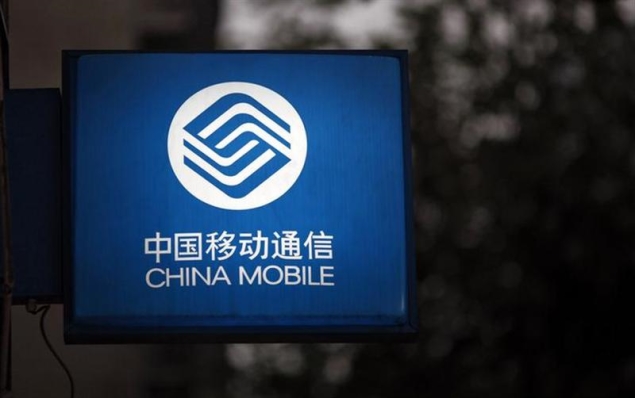- Home
- Telecom
- Telecom News
- China Mobile hopes 4G and next iPhone will unlock huge Apple demand
China Mobile hopes 4G and next iPhone will unlock huge Apple demand

The world's largest mobile carrier - with more than twice as many subscribers as there are people in the United States - already has more than 10 million of its customers owning an iPhone even though the gadget doesn't properly work with the Chinese firm's homegrown TD-SCDMA 3G technology, which is not compatible with global technologies.
That inferior technology, and the failure to offer customers an iPhone contract - which its main rivals do - has been a key reason for China Mobile's slowing profit growth.
The company, valued at $220 billion or half an Apple, is expected to say on Thursday that its net income rose just 1.2 percent last year to 127.4 billion yuan, according to a Reuters poll of 13 analysts - the slowest growth since profits actually fell in 1999.
While many of China Mobile's iPhone users have found clever ways around some of the carrier's limitations, the company wants to close the gap with its two smaller rivals - China Unicom and China Telecom which already offer iPhone compatible technology.
Industry experts expect Apple's next iPhone will support China Mobile's TD-LTE 4G technology, even though this will be less widely used than the FDD-LTE standard.
"Apple's iPhones will be like a killer app for China Mobile once its gets its 4G up and running," said Huang Leping, an analyst at Nomura International in Hong Kong. "That will definitely boost user numbers, though it will weigh on the bottomline in the first year or so as China Mobile will most probably have to provide heavy handset subsidies for the iPhone."
China Telecom, which signed up to sell the iPhone last year, increased its spending on handset subsidies by 50 percent in the first half of last year, and has seen its profits fall in the last three quarters on higher marketing and subsidy costs.
No-frills
Most of China Mobile's 715 million subscribers are no-frills users attracted to its wide network coverage across the vast country. Only a small number are premium, tech-savvy consumers.
Just 13 percent of its users are on 3G, compared with one third at China Unicom and 44 percent at China Telecom, which use other variants of CDMA 3G technologies developed by global players such as Japan's NTT Docomo and Qualcomm Inc.
Using the iPhone on China Mobile's homegrown 3G network can be as sluggish as being hooked up to a 2G network, but many users take advantage of the carrier's many wi-fi hot-spots for heavier data-crunching applications such as playing games and downloading software.
Demand for the iPhone has spawned a cottage industry, with some local phone vendors selling SIM card cutters that act like a hole-punch to trim bigger cards to fit the smaller iPhone slots. Some China Mobile sales outlets offer on-the-spot SIM-trimming services as well as wi-fi cards that iPhone users can use in most hot-spots.
China Mobile is aggressively pushing for 4G to improve the user experience in a market where chatting on Tencent Holdings Ltd's WeChat and checking microblogs on Sina Corp's Weibo are the norm among smartphone users.
Analysts expect China Mobile to spend $3 billion this year on developing its 4G network, from a total capex budget of around $35 billion. The company's chairman Xi Guohua said at the Mobile World Congress in Barcelona this year that the carrier planned to build a TD-LTE 4G network with 200,000 base stations to cover more than 100 Chinese cities, home to 500 million potential users.
While Beijing is likely to grant 4G licenses as early as the second half of this year, it will take at least 18 months for the technology and the handset market to be mature enough for large-scale commercialisation, SWS Research analyst Jim Tang wrote in a recent report.
© Thomson Reuters 2013
Get your daily dose of tech news, reviews, and insights, in under 80 characters on Gadgets 360 Turbo. Connect with fellow tech lovers on our Forum. Follow us on X, Facebook, WhatsApp, Threads and Google News for instant updates. Catch all the action on our YouTube channel.
Related Stories
- Samsung Galaxy Unpacked 2026
- iPhone 17 Pro Max
- ChatGPT
- iOS 26
- Laptop Under 50000
- Smartwatch Under 10000
- Apple Vision Pro
- Oneplus 12
- OnePlus Nord CE 3 Lite 5G
- iPhone 13
- Xiaomi 14 Pro
- Oppo Find N3
- Tecno Spark Go (2023)
- Realme V30
- Best Phones Under 25000
- Samsung Galaxy S24 Series
- Cryptocurrency
- iQoo 12
- Samsung Galaxy S24 Ultra
- Giottus
- Samsung Galaxy Z Flip 5
- Apple 'Scary Fast'
- Housefull 5
- GoPro Hero 12 Black Review
- Invincible Season 2
- JioGlass
- HD Ready TV
- Latest Mobile Phones
- Compare Phones
- Tecno Pova Curve 2 5G
- Lava Yuva Star 3
- Honor X6d
- OPPO K14x 5G
- Samsung Galaxy F70e 5G
- iQOO 15 Ultra
- OPPO A6v 5G
- OPPO A6i+ 5G
- Asus Vivobook 16 (M1605NAQ)
- Asus Vivobook 15 (2026)
- Brave Ark 2-in-1
- Black Shark Gaming Tablet
- boAt Chrome Iris
- HMD Watch P1
- Haier H5E Series
- Acerpure Nitro Z Series 100-inch QLED TV
- Asus ROG Ally
- Nintendo Switch Lite
- Haier 1.6 Ton 5 Star Inverter Split AC (HSU19G-MZAID5BN-INV)
- Haier 1.6 Ton 5 Star Inverter Split AC (HSU19G-MZAIM5BN-INV)







![[Partner Content] OPPO Reno15 Series: AI Portrait Camera, Popout and First Compact Reno](https://www.gadgets360.com/static/mobile/images/spacer.png)









